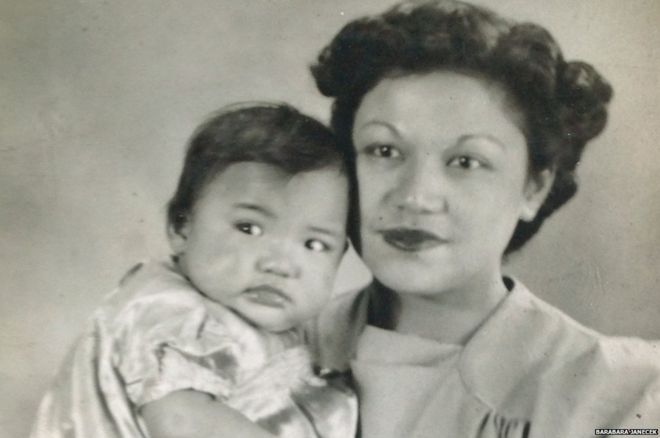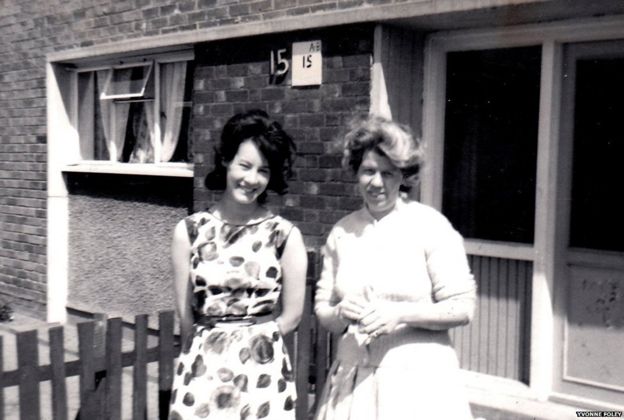Mixed Race Male and Female Participants Needed to Take Part in a Research Project
ESRC Centre on Dynamics of Ethnicity (CoDE)
The University of Manchester, Manchester, United Kingdom
2015-07-25
Karis Campion, Ph.D.
Doctoral Researcher and Graduate Teaching Assistant

- Do you have Mixed White and Black Caribbean heritage?
- Were you born between 1955-1970 or 1980-1995?
- Did you grow up in Birmingham?
If your answers to the above are yes, would you like to take part in an interview exploring mixed race people in post-1945 Britain?
If you think you may be interested in taking part and would like to hear a little more information about the project through an informal chat, then please contact me, Karis Compion via telephone at 07850479436 or via e-mail at Karis.campion@manchester.ac.uk. I am particularly encouraging male participants born 1955-1970 to come forward as response rate with this group has so far been quite low. Also, please read the Participant Information Sheet below.
University of Manchester School of Social Sciences: Participant Information Sheet
What is the title of the research?
The Making of Mixed Ethnicities, 1945-2011
Who will conduct the research?
Karis Campion, PhD researcher
Arthur Lewis Building
The University of Manchester
Oxford Road
Manchester, M13 9PL
What is the aim of the research?
To find out how mixed ethnicities have been experienced and constructed within particular time periods in Britain since mass-migration after World War II. Within these broader research aims, the research will explore how mixed ethnicities have been experienced in particular geographical locations in Britain. The research also aims to explore how gender and social class impact on mixed ethnicities.
Why have I been chosen?
You have been chosen because you grew up in Birmingham, have a Mixed White and Black Caribbean heritage, and were born between 1955-1970 or 1980-1995. Many other participants like you will be involved.
What would I be asked to do if I took part?
You would be asked to take part in an interview that I will lead. Within this you will be asked questions that are mainly concerned with your experience of having a mixed ethnicity. The interview process can be enjoyable but there is a possibility that you may find some of the topics sensitive to talk about depending on your own experiences. We will mutually agree on a time and place to conduct the interview prior to it taking place. I might also ask you to pick some photographs from your own collection that you feel represent particular stages in your life as a teenager and young adult. These could be either hard or digital copies on a phone/camera. These could include pictures of you when you left school, when you first left home or started your first job. These photographs will be used to help you share your memories in the interview; they will remain in your possession after the interview and will not be reproduced in the thesis. Bringing photographs however, is not compulsory, so do not worry if this is not possible.
What happens to the data collected?
The analysis of the data will be written in to my PhD research project and possibly published in academic journals and presented at academic conferences. It will be made public and available to other researchers and academics.
How is confidentiality maintained?
During the research process the data collected will be audio-recorded. The data will be stored in a safe secure place, such as a password protected data stick and any tapes will be locked away in appropriate storage such as office drawers. It will then be analysed by me the researcher in a private study space. The only other people the information will be shared with are two other University staff who supervise me with my project and help me with my analysis. All participants will be given pseudonyms in the written up research. These are fictitious names, so you will not be able to be identified.
What happens if I do not want to take part or if I change my mind?
If you do decide to take part you will be given this information sheet to keep and be asked to sign a consent form. If you decide to take part you are still free to withdraw from the process at any time without giving a reason and without detriment to yourself.
Will I be paid for participating in the research?
No.
What is the duration of the research?
You will participate in one interview which will last between half an hour and two hours.
Where will the research be conducted?
Birmingham—either in your home or a public space that you would prefer such as a café or library.
Will the outcomes of the research be published?
Yes, most likely. This would mean that the research findings and data will be shared with other academic researchers.
What benefit might this research be to me or other subjects of the research?
The research will not directly benefit you. It will explore the specific experiences of people with mixed ethnicities like you. Your participation will help contribute towards existing academic research which attempts to highlight the specific needs and experiences of this fast growing ethnic group in Britain.
Contact for further information contact:
Karis Campion
Telephone Number: 07850479436
E-mail: Karis.campion@manchester.ac.uk
What if something goes wrong?
If anything goes wrong and you are unhappy for any reason, you can make a formal complaint about the conduct of the research by contacting:
Head of the Research Office, Christie Building
University of Manchester
Oxford Road
Manchester, M13 9PL






